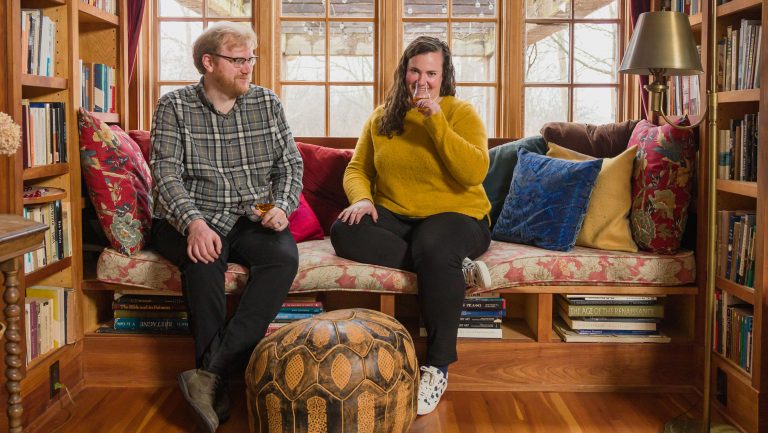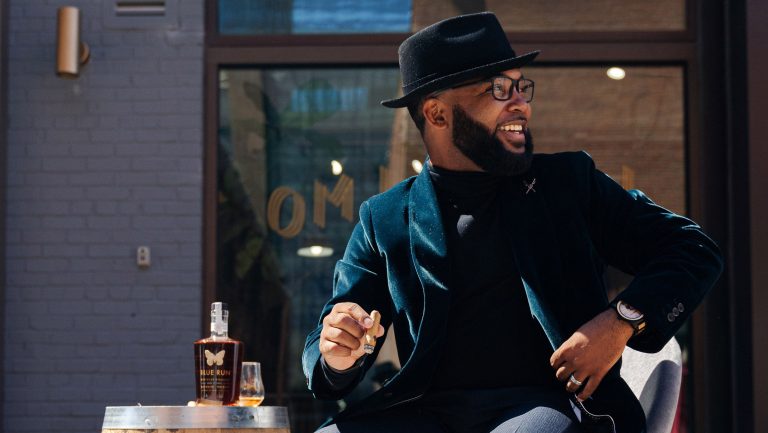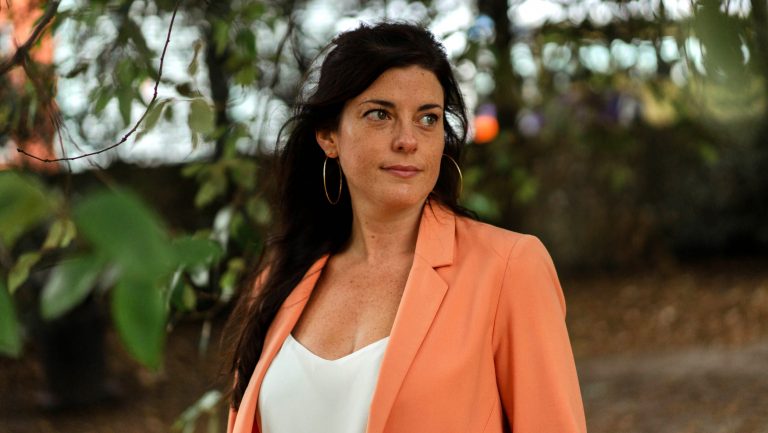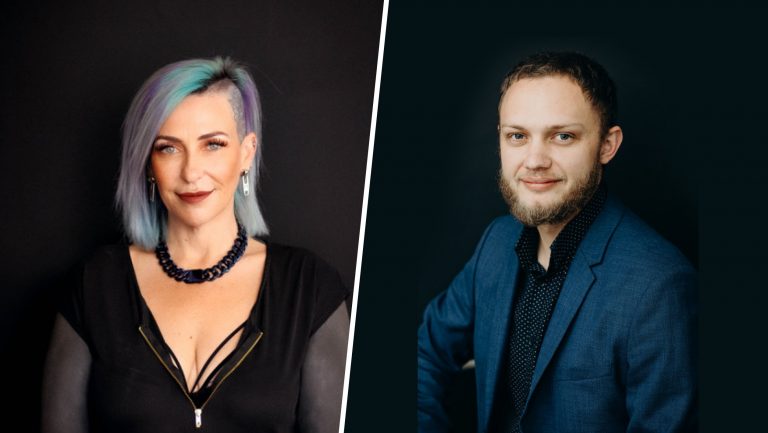This is part of SevenFifty Daily’s 2023 Drinks Innovators series. You can learn more about the rest of our award-winners here.
About six years ago, whiskey was the liquid love language that brought partners Nora Ganley-Roper and Adam Polonski together. They both had some solid spirited cred—she was a sales manager at New York’s Astor Wines & Spirits; he was the senior whisky specialist for Whisky Advocate magazine. But while discovering the breadth of the category the world over, they also found a rather obvious hole in America’s growing craft whiskey landscape: a one-stop shop for bespoke barrel-aged bottles with all the nuance they bring to the local and global whiskey conversation.
Founded in 2020, Ganley-Roper and Polonski’s Lost Lantern was launched as an independent bottler to seek out, curate, and highlight all that the American craft whiskey landscape has to offer, and then bring it to the average consumer via their 40-state strong website working with an umbrella of retail partners. The thing that sets them apart is that they’re sourcing, blending, and bottling under the Lost Lantern label, highlighting each distillery or unique distillery blend in order to tell the story of American craft whiskey.

Don’t miss the latest drinks industry news and insights. Sign up for our award-winning newsletters and get insider intel, resources, and trends delivered to your inbox every week.
One of Ganley-Roper and Polonski’s motivations to start Lost Lantern was transparency in sourcing. “So many places source from somewhere else, and it’s not a bad thing,” says Polonski. In fact, it’s an old thing. In Scotland in particular, independent bottlers source whiskey, sometimes blend it, and bottle it under their own label but with complete transparency of where the liquid inside came from. “That was the whole point,” says Polonski. “Where they came from was an important part of the story. There was nothing like that in the U.S. market for American whiskey at the time we started.”
The other part of Lost Lantern’s mission is to shine a light on American craft whiskeys and make them more accessible. “We wanted someone who could kick the tires and tell us who to taste. Finally, we were like, ‘fine, we’ll do it!’” says Ganley-Roper. “We started Lost Lantern because we wished something like it existed. We’re doing our best to speak to someone who knows and understands whiskey but doesn’t have the time to taste through 2,000 whiskeys.” Many of their bottlings would be nearly impossible for the average whiskey lover to gain access to for many reasons including simple geography or that small distilleries often don’t have the resources to get what they make much past the tasting room doors.
In addition to highlighting whiskeys buried in the barrel houses of the distilleries with whom they partner (they visit every distillery that becomes a partner), they’re also excited about moving the conversation on topics like whiskey regionality, American Single Malts, and unique production methods.
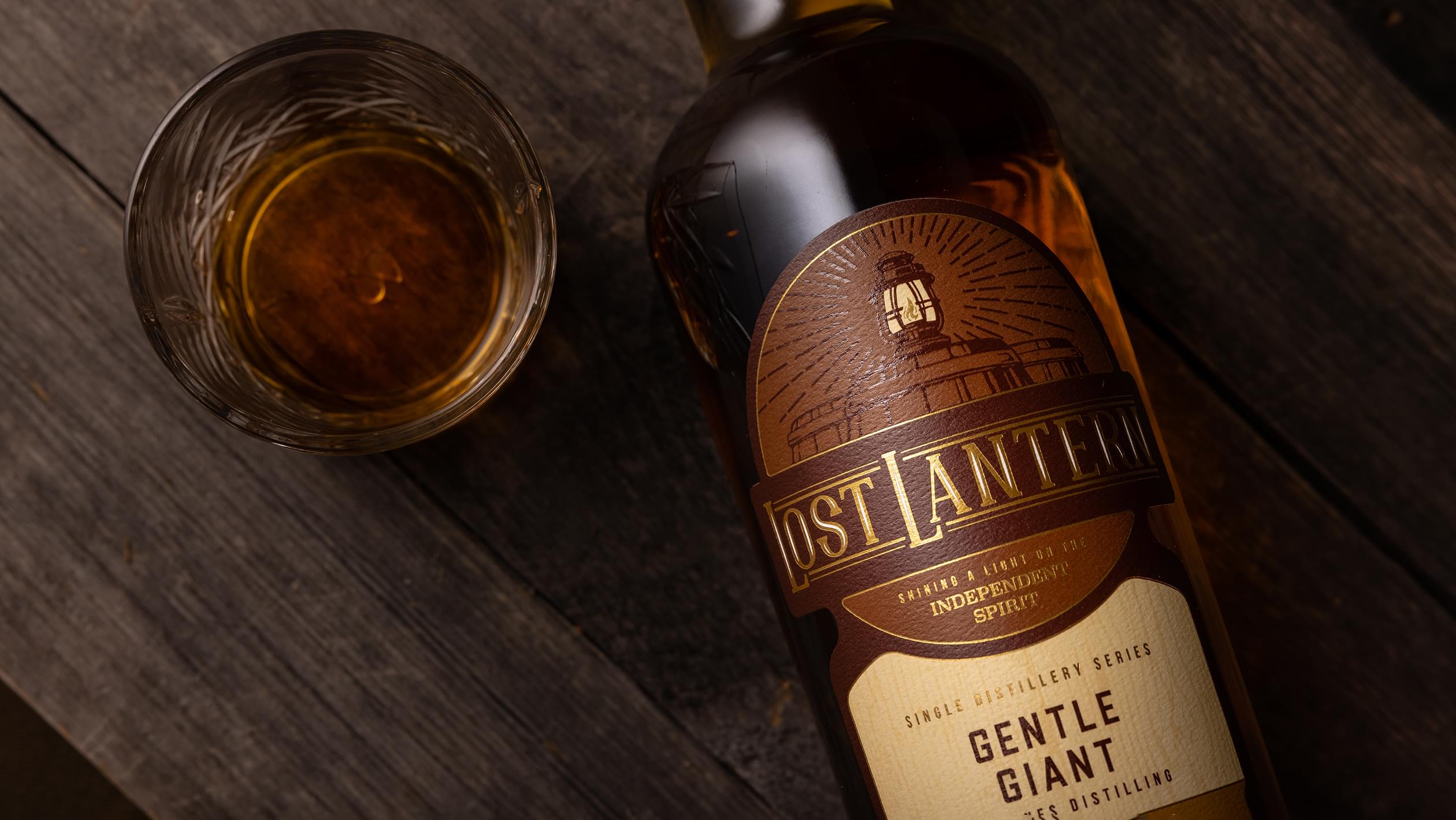
Similar to chapters in a book, Lost Lantern groups their bottlings under various series. These include: the Blend Series, which are blended whiskeys from multiple distilleries all across the U.S.; the Single Distillery Series, showcasing American single malts and other unique releases from single distilleries; and the Single Cask Series, to offer a moment’s snapshot of a particular producer. They also introduce their distillers to each other, adding the opportunity for the exchange of ideas and, ultimately, more depth to the ongoing conversation that is American whiskey. Ganley-Roper and Polonski are also in the midst of building their own blending and bottling depot in Vergennes, Vermont, a 200-plus barrel facility with a tasting room, slated to open in fall 2023.
Another winning facet of Lost Lantern: Ganley-Roper is the general manager. “Lost Lantern is a woman-owned business. I’m the primary majority owner and that decision was made before we even officially started,” she says. “While there are an increasing number of women in leadership roles in whiskey, there are few in ownership positions. This was another way to make it so when someone thinks of whiskey, they’re not thinking only about a white dude.”

Dispatch
Sign up for our award-winning newsletter
Don’t miss the latest drinks industry news and insights—delivered to your inbox every week.
Amy Zavatto is the author of Prosecco Made Me Do It: 60 Seriously Sparkling Cocktails, Forager’s Cocktails, and The Architecture of the Cocktail. Her stories appear in Liquor.com, Imbibe, Beverage Media, and many others. She judges at the American Craft Spirits Association annual competition and the New York Wine & Food Classic, and she earned her Level III Certificate from the Wine & Spirits Education Trust, but her favorite way to learn is through taste and travel. She’s a big fan of underdogs and talking with her hands.

